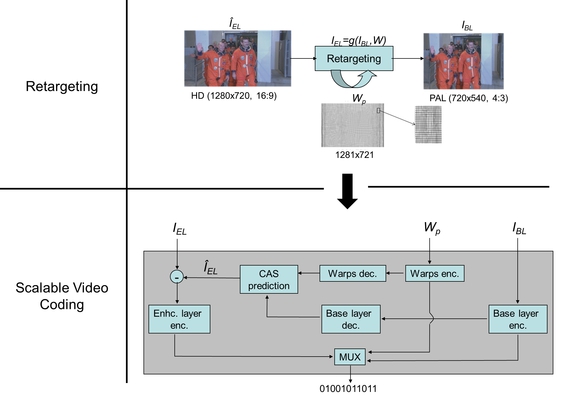Content-Adaptive Spatial Scalability for Scalable Video Coding
This paper presents an enhancement of the SVC extension of the H.264/AVC standard by content-adaptive spatial scalability (CASS).
December 8, 2010
Picture Coding Symposium (PCS) 2010
Authors
Yongzhe Wang (Shanghai Jiao Tong University)
Nikolce Stefanoski (Disney Research)
Xiangzhong Fang (Shanghai Jiao Tong University)
Aljoscha Smolic (Disney Research)
Content-Adaptive Spatial Scalability for Scalable Video Coding
CASS introduces a novel functionality which is important for high quality content distribution. The video streams (spatial layers), which are used as input to the encoder, are created by content-adaptive and art-directable retargeting of existing high resolution video. Video is retargeted to resolutions and aspect ratios which are mainly dictated by target display devices. Thereby no content is cut off, but visually important content is preserved at the expense of a non-linear distortion of visually unimportant areas. The non-linear dependencies between such video streams are efficiently exploited by CASS for scalable coding. This is achieved by integrating warping-based non-linear texture prediction and warp coding into the SVC framework. The results indicate high prediction accuracy of non-linear predictors and high compression efficiency with limited increase in bit rate and complexity compared to the standard SVC.

